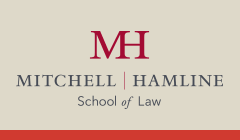Publication Information
44 Mitchell Hamline Law Journal of Public Policy and Practice 177 (2023)
Abstract
The War on Drugs refers to a situation in which all the processes of production, distribution, and consumption of all illegal drugs are prohibited. This ambitious goal has imposed considerable costs on societies. The war has weaponized harsher punishments such as life imprisonment, execution, and long-term incarceration against drug offenders. Nonviolent offenders, those who possessed illegal drugs, have been easy targets for governments to show that the war is still ongoing. Although some countries became pioneers in changing the laws to end this costly war, Iran and the United States have made their stance on the drug issue clear, and show their persistence by recruiting law enforcement agents and continuing the fight. This article argues that the continuation of this war is deprived of any rationality that a cost-effectiveness approach could provide. It is also not compatible with the nonaggression principle; therefore, radical change is inevitable to alter nonviolent drug offenders’ situations and keep them away from prisons. The argument is that AI (Artificial Intelligence) risk assessment tools can instrumentally be efficient in safeguarding criminal justice from the adverse side effects that the war on drugs has bred and might contribute to the reduction of population in prisons by predicting drug offenders' dangerousness, separating high-risk offenders from low-ones, and stopping nonviolent offenders’ imprisonment.
Recommended Citation
Pedram, Matin
(2023)
"AI Risk Assessment Tools Amid the War on Drugs: Productive or Counterproductive?,"
Mitchell Hamline Law Journal of Public Policy and Practice: Vol. 44:
Iss.
1, Article 5.
Available at:
https://open.mitchellhamline.edu/policypractice/vol44/iss1/5
Included in
Criminal Law Commons, Criminal Procedure Commons, Evidence Commons, Fourteenth Amendment Commons

